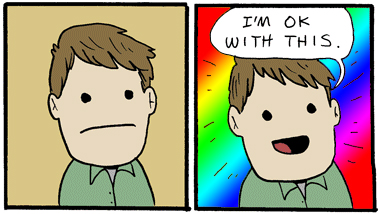I'm going to essentially repost my comment from the entry here.
Okay, let's beat the crowd to dumping this in here, several of the editors of this entry are already aware of this, and will no doubt incorporate it in some fashion. Someone found this in the Wellesley College 1909 yearbook:
[photo:255116]
Now while some like this person are going to claim this as the "invention" of the meme, I would claim (as I did in the comments on that site) that this meme is simply a visual representation of a certain sort of ironic humor that existed long before 1909. In less than ten minutes of Google searching, I turned up this cartoon from 1903:
[photo:255117]
While not as close to the format typical in this meme entry as the Wellesley cartoon, I think it demonstrates the form of humor is older than 1909, and I suspect research could dig up older, better examples.
Your thoughts?





